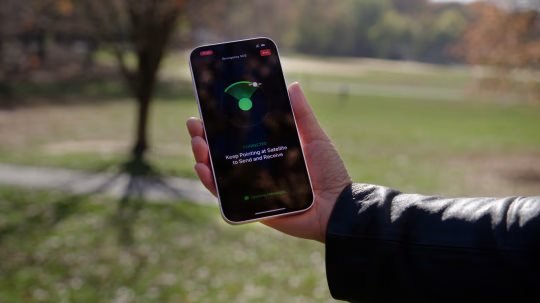
In the rapidly evolving world of technology, few rivalries have captured the public’s attention like the growing conflict between two of the most influential figures in the industry: Apple and Elon Musk. Over the years, Apple has established itself as one of the leading tech giants, continuously revolutionizing consumer electronics. Elon Musk, on the other hand, has become synonymous with innovation, spearheading groundbreaking ventures with companies like Tesla, SpaceX, Neuralink, and now Twitter (X). But recently, their paths have crossed in a way that has sparked discussions across the tech world. This new battle is not only a clash of business empires but also a showdown of contrasting visions for the future of technology.
**The Rise of Elon Musk’s Tech Empire**
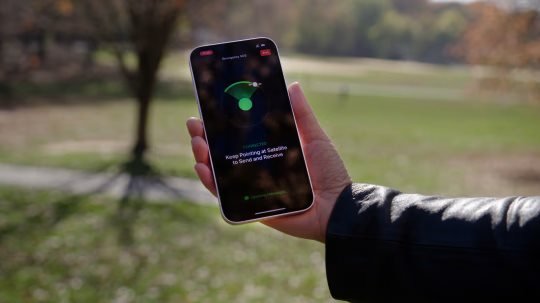
Elon Musk’s journey through the tech industry is nothing short of extraordinary. Known for his ventures into electric vehicles with Tesla and space exploration with SpaceX, Musk has continually pushed the boundaries of what is possible. His companies have revolutionized entire industries, from the automotive sector to space travel, and Musk’s ability to generate hype around new technologies has made him a household name.
In recent years, however, Musk’s ambitions have expanded beyond traditional industries. His acquisition of Twitter (rebranded as X) in 2022 signaled his intention to reshape social media and, by extension, the broader communication landscape. Through X, Musk aims to transform the platform into a “super app,” combining social networking, e-commerce, financial services, and more into a single platform.
But Musk’s vision for X, while bold, has not come without challenges. The platform has faced criticism for its management style, content moderation policies, and monetization strategies. Despite this, Musk’s resilience and relentless drive to innovate have kept him in the spotlight, making him one of the most influential and controversial figures in tech today.

**Apple: A Giant with a Different Vision**
Apple, founded by Steve Jobs, Steve Wozniak, and Ronald Wayne in 1976, has been a dominant force in the tech world for decades. With its innovative products like the iPhone, iPad, Mac, and Apple Watch, Apple has built an ecosystem that has captured the hearts of millions of loyal customers. Unlike Musk, who embraces a more daring, experimental approach, Apple has traditionally taken a more controlled, polished route in its product development.
Under the leadership of Tim Cook, Apple has focused on creating seamless user experiences, integrating hardware, software, and services into a cohesive ecosystem. The company’s ability to combine cutting-edge technology with elegant design has led to massive success, with Apple becoming the first company to reach a market valuation of $3 trillion in 2022. Apple’s commitment to privacy and security has also set it apart in an industry where data protection has become a major concern.
However, while Apple has dominated the consumer electronics market, it has faced increasing pressure to diversify its offerings and stay ahead of emerging trends. The company has ventured into new territories like streaming services with Apple TV+, wearables, and even augmented reality (AR) and virtual reality (VR), but it has largely remained within the realm of its existing ecosystem.
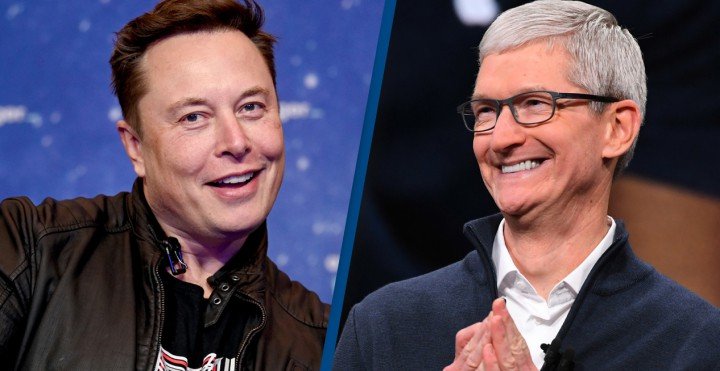
**The Collision Course: Musk vs. Apple**
The battle between Elon Musk and Apple is not one of direct competition in product offerings but rather a clash of ideologies and business strategies. Musk’s aggressive approach to innovation and his willingness to disrupt industries contrast sharply with Apple’s more cautious and user-centric model. The most recent flashpoint in this battle is Musk’s decision to target the iPhone’s dominance in the mobile space.
Elon Musk’s Twitter (X) has taken aim at the App Store, Apple’s digital marketplace for iOS apps. Musk has criticized the 30% commission that Apple takes from app developers, claiming that it stifles innovation and is detrimental to both creators and users. In an attempt to bypass Apple’s App Store fees, Musk has pushed for changes to how X operates, making the platform less reliant on the traditional app ecosystem.
This move has sparked a broader debate about the power Apple holds over developers and users through the App Store. Musk’s criticism of Apple’s business model aligns with his broader philosophy of disrupting monopolies and creating more open systems. In many ways, Musk’s approach to X mirrors his work with Tesla, where he sought to reduce the company’s reliance on traditional car dealerships and push for a direct-to-consumer sales model.
Apple, on the other hand, has defended its App Store policies, arguing that the fees are necessary to maintain the security, privacy, and functionality of the iOS ecosystem. The company has also pointed to the fact that it invests heavily in maintaining the App Store’s infrastructure and ensuring that apps meet stringent guidelines.
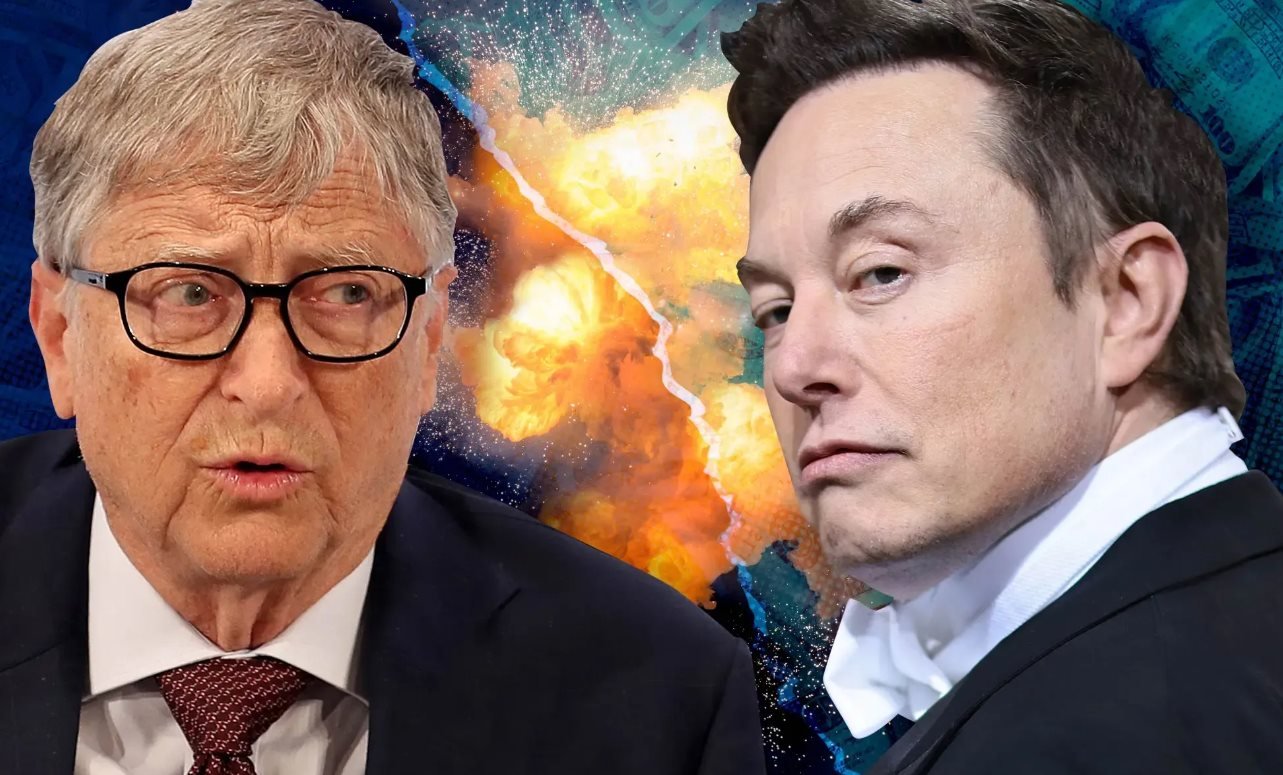
**X vs. the iPhone: The Next Big Battle**
One of the most intriguing aspects of this battle is the potential for X to challenge the iPhone’s dominance in the smartphone market. Musk has made no secret of his ambition to create a more open, feature-rich mobile platform, and he has hinted at the possibility of launching a new device, dubbed the “X Phone.” If this becomes a reality, it would directly compete with Apple’s flagship iPhone, which has been the dominant smartphone on the market for over a decade.
The potential for an “X Phone” has stirred excitement in the tech community, as Musk’s track record of disrupting industries suggests that he could bring something radically different to the smartphone market. With his experience in designing the highly innovative Tesla electric vehicles and the upcoming Cybertruck, it’s possible that Musk could bring a similar level of creativity and innovation to a new mobile device.
However, the road to dethroning the iPhone is not an easy one. Apple’s iPhone ecosystem is deeply entrenched, and the company has a loyal customer base that has grown accustomed to its seamless integration with other Apple products. Moreover, Apple’s supply chain and manufacturing capabilities are unparalleled, giving it a significant edge in producing high-quality devices at scale.
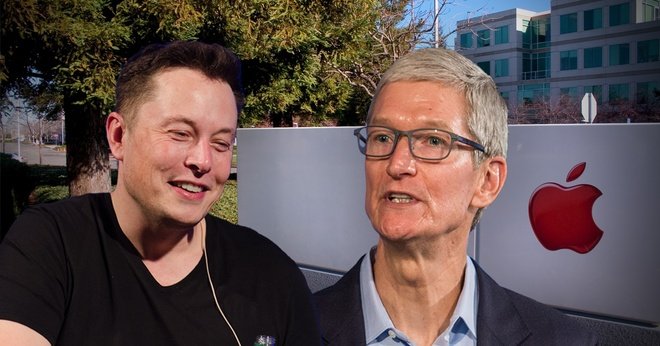
**The Future of the Tech War: Innovation and Integration**
As the battle between Elon Musk and Apple continues to unfold, one thing is clear: the tech world is in for a major shake-up. Musk’s willingness to challenge established norms and his relentless pursuit of innovation could force Apple to rethink its approach to product development and business strategy. Meanwhile, Apple’s steadfast commitment to privacy, user experience, and ecosystem integration will likely continue to be its strongest selling points.
The rivalry between Musk and Apple also reflects broader trends in the tech industry, including the growing importance of platform ecosystems, the battle for user data, and the push toward more sustainable and open technologies. Whether through X or other future ventures, Musk’s influence is undeniable, and his ability to challenge Apple’s dominance will keep the tech world on edge for years to come.
In conclusion, the battle between Elon Musk and Apple is not just about two companies vying for dominance in the tech space. It’s about two fundamentally different visions of the future of technology. Whether Musk can break Apple’s stranglehold on the mobile market or whether Apple can continue to lead with its integrated approach to technology remains to be seen. One thing is for sure: the outcome of this battle will have far-reaching implications for the future of the tech industry as a whole.


